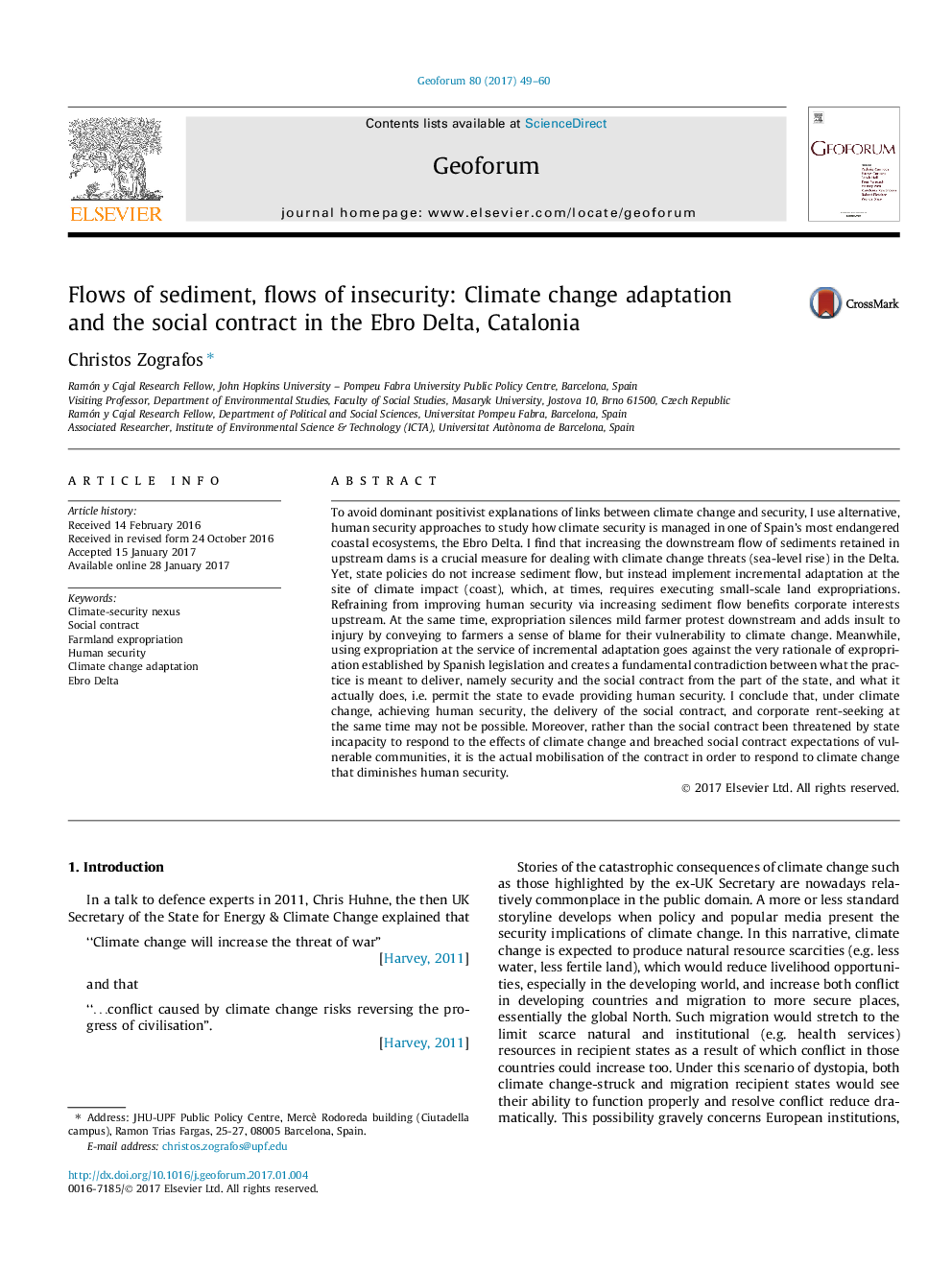| Article ID | Journal | Published Year | Pages | File Type |
|---|---|---|---|---|
| 5073259 | Geoforum | 2017 | 12 Pages |
To avoid dominant positivist explanations of links between climate change and security, I use alternative, human security approaches to study how climate security is managed in one of Spain's most endangered coastal ecosystems, the Ebro Delta. I find that increasing the downstream flow of sediments retained in upstream dams is a crucial measure for dealing with climate change threats (sea-level rise) in the Delta. Yet, state policies do not increase sediment flow, but instead implement incremental adaptation at the site of climate impact (coast), which, at times, requires executing small-scale land expropriations. Refraining from improving human security via increasing sediment flow benefits corporate interests upstream. At the same time, expropriation silences mild farmer protest downstream and adds insult to injury by conveying to farmers a sense of blame for their vulnerability to climate change. Meanwhile, using expropriation at the service of incremental adaptation goes against the very rationale of expropriation established by Spanish legislation and creates a fundamental contradiction between what the practice is meant to deliver, namely security and the social contract from the part of the state, and what it actually does, i.e. permit the state to evade providing human security. I conclude that, under climate change, achieving human security, the delivery of the social contract, and corporate rent-seeking at the same time may not be possible. Moreover, rather than the social contract been threatened by state incapacity to respond to the effects of climate change and breached social contract expectations of vulnerable communities, it is the actual mobilisation of the contract in order to respond to climate change that diminishes human security.
